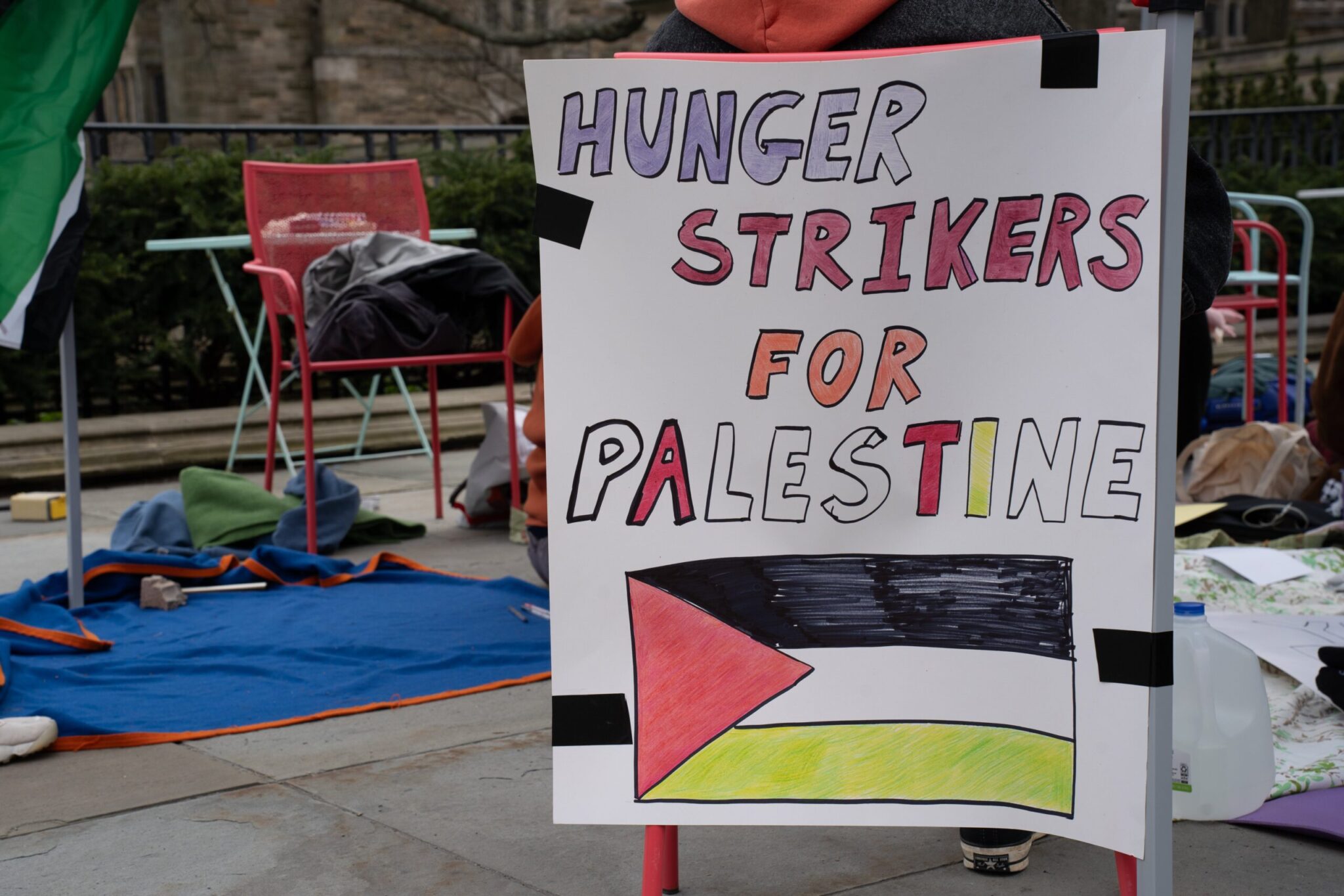Yale faculty members weigh in on hunger strike as administration stays silent
Professors expressed concern for hunger strikers’ health while affirming their right to peaceful protest.

Ellie Park, Photography Editor
With 14 Yale students set to enter the third day of a hunger strike for divestment and University President Peter Salovey refraining from making public comments, the News sought out faculty opinion on the ongoing demonstration.
The strike, consisting of two undergraduate students and 12 graduate students, is part of an ongoing effort to demand that the University divest from weapons manufacturers involved in Israel’s war against Hamas in Gaza.
“I’m trying to put myself in Salovey’s shoes, and I think he should talk with them directly and offer a kind of timeline for this decision,” James Scott, Sterling professor of political science, told the News. “Administrations are often happy to wait these things out, but Salovey should be concerned enough to engage with them and provide a reasonable timeline. Nobody wants anyone to get hurt here.”
Salovey told the News on Nov. 2 that the University’s Advisory Committee on Investor Responsibility — composed of faculty, students, staff and alumni — is “studying whether there are grounds to revisit” its current investment policy under Yale’s ethical investment framework.
The Yale endowment owns 6,564 shares — worth $621,171 — of iShares, an exchange-traded fund managed by Blackrock. According to the Blackrock website, the ETF holds shares in Lockheed Martin and Boeing.
On the first day of the strike, from 11 a.m. to 3 p.m., students gathered on Cross Campus to handwrite letters to Salovey in support of the hunger strikers.
Neither Salovey nor Dean of Yale College Pericles Lewis has responded to requests for comment on the strike. Yale’s spokesperson previously wrote to the News that Yale is “committed to free expression and the right to peaceful protest,” and that University administrators have reached out to protestors to “provide them with resources.”
“I think the students are quite likely to end up sacrificing their health and wellbeing for no gain,” Barry Nalebuff, a School of Management professor specializing in negotiation and game theory, told the News. “Yale wants to make decisions based on rational consideration of the arguments, not the impassioned views of a few students.”
Even if Yale wanted to divest, Nalebuff said, the administration would not do so in response to a hunger strike, a concession which he said would “send the wrong signal.”
English Professor Feisal Mohamed affirmed the students’ right to protest while expressing concern for their well-being.
“I certainly respect the peaceful, and indeed self-sacrificing, form of protest that the Hunger Strikers for Palestine have chosen to adopt,” Mohamed said. “But as a member of the faculty, and so someone invested in the well-being of all students on campus, I will watch with no small anxiety for their safety.”
Mohamed added that he believes the protesters’ demands are “within the spirit of Yale’s previous commitments on responsible investment.”
Yale’s endowment is worth $40.7 billion.







